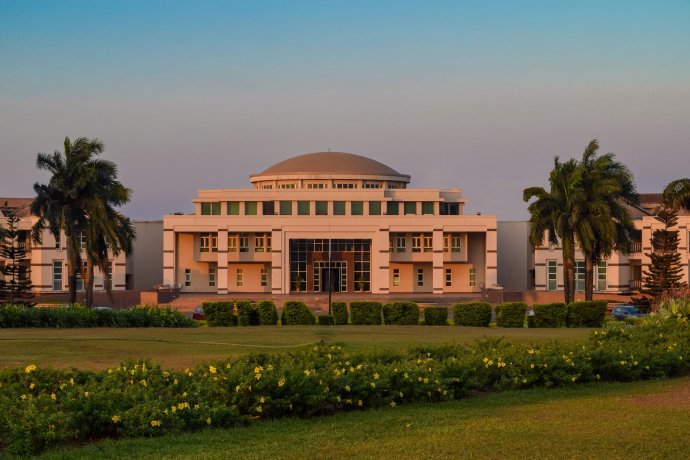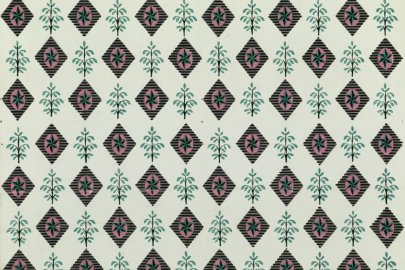
Les 8 et 9 novembre 2023, ce troisième atelier de la focus area La Vie Sociale de la Confiance Commerciale se tiendra au BITS Pilani, Goa, intitulé Inscrire la confiance dans l'histoire des capitalismes : histoires d'Asie, d'Afrique et d'Europe dans une perspective comparative.
Il a l'intention de réunir des chercheurs travaillant sur les histoires du capital et de la circulation en Eurasie, en Afrique et dans l'Océan Indien pour revisiter l'idée de la confiance et son utilité en tant que concept heuristique. Il abordera la question du capitalisme au pluriel et comment les sociétés, en particulier celles colonisées, ont connu une transition pour atteindre leur version du développement commercial et industriel, dans lequel le droit, les relations de propriété, les réseaux communautaires et la coutume ont fonctionné de manière inattendue pour créer ses préconditions nécessaires. Il ne se limitera pas à la vieille question du droit par rapport à la coutume, mais posera également la question plus large de savoir si le capitalisme était une réalité universelle à l'époque moderne, lorsque, notamment en Asie du Sud, les protocoles de confiance étaient confrontés à la fois à une fiscalité militaire agressive de la part des États et à la nouvelle idéologie des entreprises et des sociétés commerciales européennes. L'atelier espère poursuivre la conversation productive entre les sociétés, afin d'intégrer l'Afrique et l'Asie de manière plus substantielle dans l'histoire du capitalisme et de développer une approche authentiquement connectée de la problématique du capitalisme, de ses antécédents, de ses manifestations et de sa postérité.
The Social Life of Commercial Trust:
Comparative historical perspectives
from Asia, Africa and Europe, 1600-1950
An Indian-European Advanced Research Network’s Focus Area
The Indian-European Advanced Research Network (IEARN) is an informal network of research institutions based in Europe and in India, whose purpose is to foster research where the cooperation between European and Indian scholars arises through common interests and sense of shared predicaments.
Starting in 2007 with the initiative of the Wissenschaftskolleg zu Berlin and the personal involvement of Sunil Khilnani, the network has been created to help overcome the asymmetrical situation that frequently hinders the cooperation between Europe and India in the Humanities and Social sciences. The network has chosen to support several focus areas:
- Law, Politics and Constitutionalism;
- History of Sciences in India and China;
- Social Democracy in India and China;
- The Social Life of Commercial Trust;
- Collecting Pasts, Archiving Futures;
- Distribution and the Law: Indian and European constitutional approaches compared.
Convened by Lakshmi Subramanian (Centre for Studies in Social Sciences, Calcutta) and Yannick Lemarchand (University of Nantes), the focus area entitled The Social Life of Commercial Trust: Comparative historical perspectives from Asia, Africa and Europe, 1600-1950 intends to raise new questions to explore the social dimensions of commercial practice. These dimensions have generally been compartmentalised into histories of European power and Asian backwardness in the high noon of imperialism in the 19th century, or of Asian resilience and its subsequent economic miracle in the latter half of the twentieth century.
This focus area’s aim is to think innovatively not merely about the idea and languages of trust but also about concrete tools and devices that operated in the studied societies.
On 20, 21 and 22 February 2018, the Institute for Advanced Study in Nantes hosted the inaugural workshop of this focus area.
It set a useful platform to probe new questions and approaches for understanding the salience and workings of trust as a conceptual device and as a practice in commercial transactions in the early modern and modern period. The range of presentations on merchant networks, legal regimes across Asia, Africa and Europe helped revisit the larger question of capitalism in the singular, on the nature of sources and archives and on shared methodologies for studying trans-national business entities through the conceptual lens of trust and reciprocity.
To pursue and deepen these questions, a second workshop was held on 8 and 9 January 2020 at the Godrej Archives in Mumbai under the title Technologies of trust: Law, Custom and Procedure in historical and comparative perspective.
This workshop attempted to parse more carefully the actuality of trust practices and protocols and to understand the workings of law and custom. There was also a renewed engagement with archives – how to study trust practices and customs and what kind of archives actually exist and how these can be read. One of the principal takeaways of the workshop was the idea of the Law Merchant as it evolved in Europe and whether as a heuristic category its applicability was relevant in a non-European context. The workshop’s goal was also not to take a mechanistic view of law but to balance formal conceptions and procedures with customary localized practice, wherein social aspects of commerce carried weight.
Coming up next November (8-9 November 2023), a third workshop will be held at BITS Pilani, Goa entitled "Writing trust into the history of capitalism(s): histories of Asia, Africa and Europe in a comparative perspective".
It intends to bring together scholars working on the histories of capital and circulation in Eurasia, Africa and the Indian Ocean to revisit the idea of trust and its usefulness as a heuristic concept. It addresses the subject of capitalism in the plural and how societies, especially colonized, underwent transition to achieve their version of commercial and industrial development wherein, law, property relations, community networks and custom worked in unexpected ways to create its necessary pre-conditions. It will not only cover just the older debate on law versus custom, but also ask the larger question about capitalism being a universal given in the early modern period when, especially in South Asia, trust protocols confronted both aggressive military fiscalism from states as well as from the new ideology of European corporations and trading companies. The workshop hopes to continue with the productive conversation across societies, to write Africa and Asia more substantively in the history of capitalism to be able to develop a genuinely connected histories approach to the problematic of capitalism, its antecedents, manifestations and after-life.
Participants
Conveners
- Yannick LEMARCHAND, Professor emeritus, Nantes University, and Correspondent member, IAS-Nantes, France
- Lakshmi SUBRAMANIAN, Professor, Centre for Studies in Social Sciences, Calcutta, India
Scholars
- Santanu SENGUPTA, Assistant professor, Calcutta University, India
- Farhat HASAN, Professor, University of Delhi, India
- Scott LEVI, Professor, Ohio State University, USA
- Rusheed WADIA
- Lewis WADE, Honorary Research Fellow, University of Exeter, United Kingdom
- Jérôme SGARD, Professor, CERI, SciencesPo Paris, France
- Pierre GERVAIS, Professor, University Paris 3, France
- Cisse CHIKOUNA, Associate professor, University of Cocody, Abidjan, Côte d’Ivoire
- Ritu BIRLA, Associate professor, University of Toronto, Canada
- Ghulam NADRI, Professor, Director of Asian Studies Center, Georgia State University, USA
- Shweta BANERJEE, Vanier Doctoral Scholar, University of Toronto, Canada
- Meghna CHOWDHURY
- Najaf HAIDAR, Professor, Jawaharlal Nehru University, India
- Sudev SHETT

